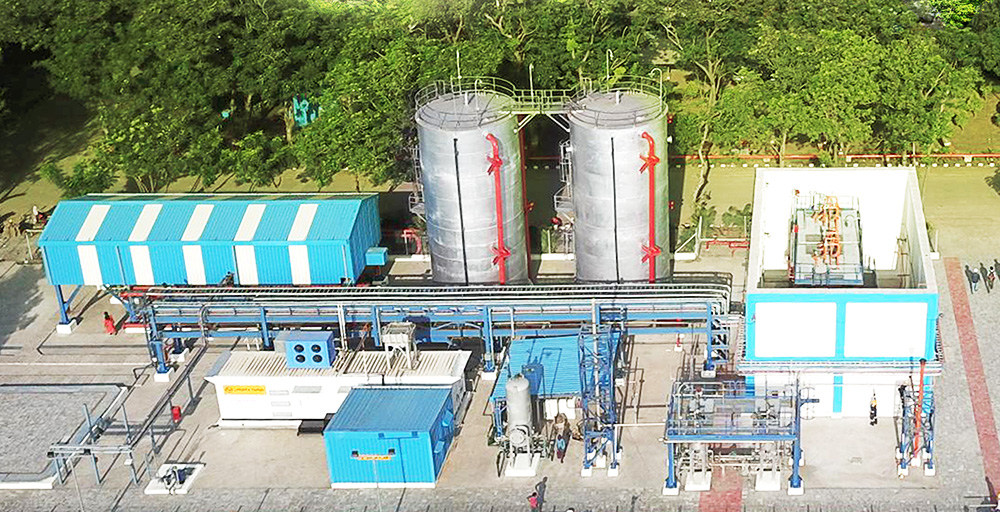The Council of Scientific & Industrial Research (CSIR), an autonomous R&D body under the government of India, is implementing a Hydrogen Technology (H2T) program with a budget of about INR 80 crore ($9.7 million) to strengthen its green hydrogen research, innovation, and technology development activities. The program focuses on improving the lifetime of electrolyzers by the development of thermochemically robust membranes and electrolytes, reinforced fluoropolymer membranes, graphite composite bipolar plates, and ceramic interconnects.
Additionally, under the Department of Science and Technology’s call of Advanced Hydrogen & Fuel Cell (AHEC 2021), R&D projects are being supported on various hydrogen technologies. Rajiv Gandhi Institute of Petroleum Technology, Amethi, and CHRIST University (deemed to be a university), Bengaluru, both are working on increasing the lifetime of electrolyzers.
Rajiv Gandhi Institute of Petroleum Technology, Amethi, is developing electrodes and a modular, compact, membrane-less electrolyzer setup for sustainable H2 production from sea, tap, and groundwater.
CHRIST University is developing an alkaline water electrolyzer stack prototype for green H2 production from dynamic renewable energy devices using a self-repairable electrocatalyst and stable membrane.
Notably, the Union Cabinet has approved the National Green Hydrogen Mission with an initial outlay of INR 19,744 crore. The Mission proposes a comprehensive R&D program to support innovation efforts for improving the affordability, efficiency, and reliability of green hydrogen technologies including electrolyzers. An outlay of INR 400 crore has been earmarked for the R&D program.
This content is protected by copyright and may not be reused. If you want to cooperate with us and would like to reuse some of our content, please contact: editors@pv-magazine.com.









By submitting this form you agree to pv magazine using your data for the purposes of publishing your comment.
Your personal data will only be disclosed or otherwise transmitted to third parties for the purposes of spam filtering or if this is necessary for technical maintenance of the website. Any other transfer to third parties will not take place unless this is justified on the basis of applicable data protection regulations or if pv magazine is legally obliged to do so.
You may revoke this consent at any time with effect for the future, in which case your personal data will be deleted immediately. Otherwise, your data will be deleted if pv magazine has processed your request or the purpose of data storage is fulfilled.
Further information on data privacy can be found in our Data Protection Policy.